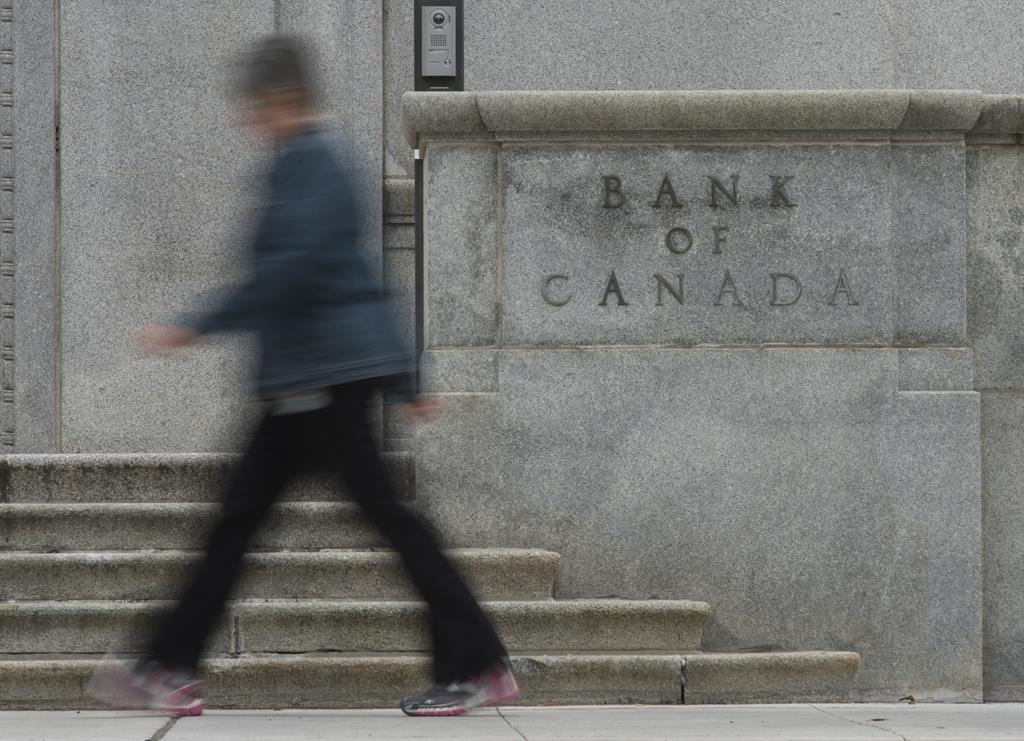Bank of Canada says household debt, home prices key risks for financial system

Posted June 9, 2022 12:04 pm.
Last Updated June 9, 2022 12:14 pm.
Household debt, inflation, and housing prices are all raising concerns for Canada’s central bank. In its latest financial system review, the Bank of Canada says the risks created by this situation could amplify the downturn.
BoC Governor Tiff Macklem says that’s especially true if there are job losses and home price corrections, noting many people who recently bought property at record prices have left themselves financially stretched.
“If those highly indebted households lose their jobs, they would likely need to reduce their spending sharply to continue servicing their mortgage. In addition, a big correction in house prices would reduce both household wealth and access to credit, particularly among the most indebted households,” Macklem explained.
Despite the concerns, he’s still holding out hope the situation won’t hit that critical of a level.
“Our goal is for a soft landing with inflation coming back to the two per cent target. But it is a vulnerability to watch closely and manage carefully,” he explained Thursday.
Macklem is also strongly signalling that interest rates in Canada will continue to rise to get a better handle on inflation.
Following the release of our #Financial System Review, Governor Macklem says more Canadians stretched to buy a house during the pandemic. And these households are more exposed to higher interest rates and the potential for housing prices to decline. https://t.co/avzqNabhqr
— Bank of Canada (@bankofcanada) June 9, 2022
The central bank notes assessing the vulnerabilities from high household debt has also become more complex over the past two years, as household finances have generally improved even as debt levels increase.
Households on average have seen their net worth increase by about $230,000 over the first two years of the pandemic, largely from rising home prices but also from the rising stock market and other gains.
The bank said however that an increasing share of households have stretched themselves financially to purchase a home, and that these households in particular may not be able to tap into home equity if housing prices were to experience a correction.
The net worth figure also only goes to the end of 2021 and doesn’t factor in the recent pullback in the stock and real estate markets.
The bank said that the strong growth in house prices during the pandemic has boosted the economy in the short-term, but in the midterm it could weigh on economic growth.
It added that looking ahead to the first quarter of 2024, the trends have increased the probability of negative growth to 15 per cent, up by five percentage points compared to what it would have been had debt levels not changed during the pandemic.
Related articles:
-
Homeowners worried about finances as inflation, interest rates squeeze budgets
-
Canada’s opposition presses Trudeau gov’t to address rising cost of living
-
More Canadians going hungry amid soaring inflation: Food Banks Canada
All this comes after house prices were up 24 per cent in April compared with a year earlier, and up 53 per cent relative to April 2020.
The central bank said that part of the price gains may have been driven by expectations that prices would continue to rise simply because they have in the past, which can lead to disconnects from fundamentals and put prices at risk of a correction.
The bank notes that investors have also grown as a share of homebuyers, rising from 19 per cent to 22 per cent of buyers, and that they are extracting increasing equity from their existing properties to buy more.
The housing resale market has slowed considerably in March and April, but the bank says it’s too early to tell if the slowdown is from homebuyers who made purchases earlier in the year to secure lower rates, or if it is the start of a deeper, lasting decline.
The bank said other vulnerabilities to the financial system include cyber threats given the interconnected nature of the financial system, and the fragile liquidity in fixed-income markets.
It says Russia’s invasion of Ukraine has also further complicated the transition to a low-carbon economy and increased the risks of a repricing of assets exposed to climate change.
The annualized inflation rate hit 6.8 per cent in April — a record 30-year high.








